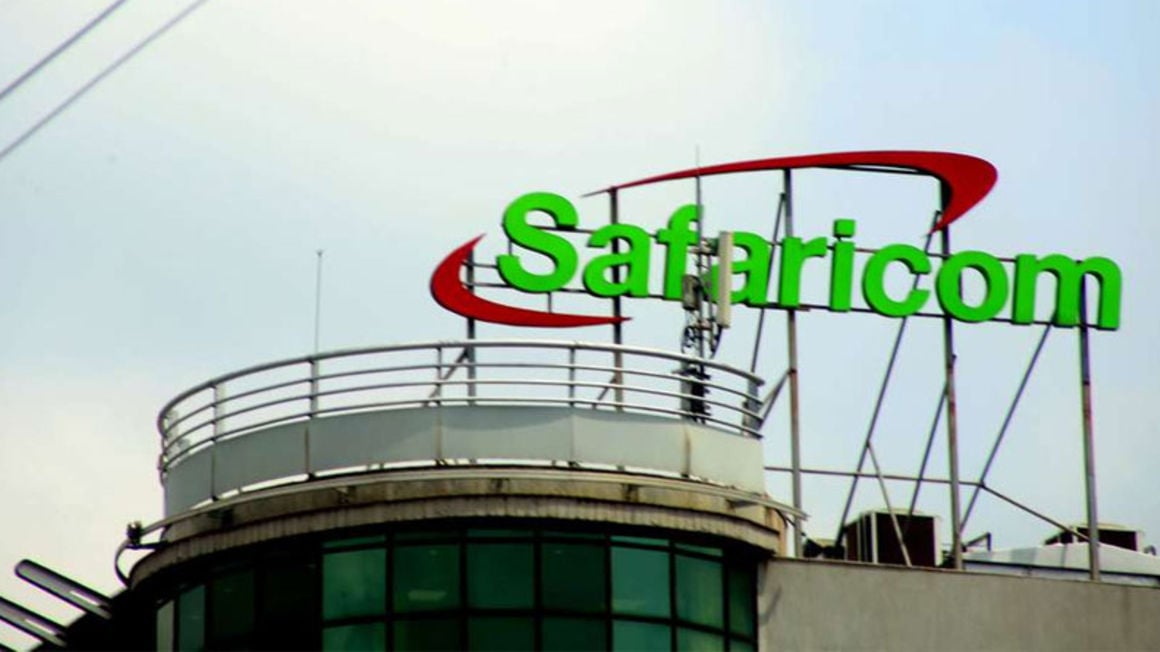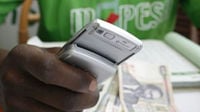
Safaricom headquarters on Nairobi’s Waiyaki Way. PHOTO | DIANA NGILA
Summary
- Safaricom said the M-Pesa 1 Tap solution contains a proprietary and innovative authentication process that has no link to Mr Gikabu’s innovation.
- Safaricom said M-Pesa 1 Tap was developed by the telco together with third parties and that the technology was available freely as an industry standard.
- The company defended itself saying Mr Gikabu sent unsolicited information, which could not create an obligation of confidence to Safaricom.
A man who accused Safaricom of seizing his idea to launch M-Pesa payments using a simple tap of a card, wrist band or a phone sticker has lost his bid to be paid Sh209 million by the telecommunications firm.
Jonathan Murangiri Gikabu claimed that M-Pesa 1 Tap was his brainchild, after selling the idea to Safaricom in 2014.
M-Pesa 1 Tap was a faster way of paying for products or services by tapping a phone sticker, wristband or card without following the eight steps to transfer cash to merchants.
But High Court judge Grace Nzioka dismissed the case, saying Mr Gikabu failed to prove that Safaricom seized the idea from him.
“It is not a matter of perception or morality. Of course, it may be unprofessional to do so or morally wrong. But from the legal point of view, the Plaintiff (Gikabu) bore the burden to prove the same,” Justice Nzioka said.
A man who accused Safaricom of seizing his idea to launch M-Pesa payments using a simple tap of a card, wrist band or a phone sticker has lost his bid to be paid Sh209 million by the telecommunications firm.
Jonathan Murangiri Gikabu claimed that M-Pesa 1 Tap was his brainchild, after selling the idea to Safaricom in 2014. M-Pesa 1 Tap was a faster way of paying for products or services by tapping a phone sticker, wristband or card without following the eight steps to transfer cash to merchants.
But High Court judge Grace Nzioka dismissed the case, saying Mr Gikabu failed to prove that Safaricom seized the idea from him.
“It is not a matter of perception or morality. Of course, it may be unprofessional to do so or morally wrong. But from the legal point of view, the Plaintiff (Gikabu) bore the burden to prove the same,” Justice Nzioka said.
The judge said in as much as there may be a possibility that Safaricom could have incorporated some of Mr Gikabu’s components in its product, there was need to provide evidence.
The innovator sued Safaricom saying he shared confidential information with the telecommunications company in 2014 only for it to use his idea to launch its NFC [Near Field Communication] mobile payment system for non-smart phones known as ‘M-Pesa 1 Tap’.
Mr Gikabu said he started working on the idea sometime in September 2011. He said the project on mobile payment system was successful and phase one of the trials was funded by Bill and Melinda Gates Foundation, through Equity Group and later the University of Nairobi.
As he prepared to apply for a grant, he shared the innovation with Safaricom through an email on October 21, 2014 on condition that the company would treat it in confidence and in good faith.
Mr Gikabu said he spent Sh9.4 million on the innovation and hoped to make at least Sh100 million from it. For the breach, Mr Gikabu wanted a further Sh100 million from Safaricom, making his total claim Sh209 million.
He sought to explain that his innovation merged the capabilities of the traditional card-based contactless payment systems with more recent mobile app ‘pay by the till’ systems to create a robust but easy use of mobile money payment system, for use with any kind of phone, smart of otherwise.
He said his innovation could work with non-smartphones and therefore no need to instal any applications.
Safaricom denied the claims and said the technology had been used by Card Planet, Buy-more and Beba Pay, which was stopped in March 2015.
The telecommunications company said it previously used the technology through a product known as ‘My 1963’, a mode of cashless fare payment card for public transport.
Safaricom told the court that after launching Lipa na M-Pesa, it piloted a project involving its 1,500 employees who used the card to pay for their meals at its cafeteria.
It later rolled out M-Pesa 1 tap, extending the growth of M-Pesa and in the process, reduced the number of steps required to make a Lipa na M-Pesa from eight to two, adding speed and convenience.
Safaricom said the M-Pesa 1 Tap solution contains a proprietary and innovative authentication process that has no link to Mr Gikabu’s innovation.
Safaricom said M-Pesa 1 Tap was developed by the telco together with third parties and that the technology was available freely as an industry standard and no one could claim to own it.
The company defended itself saying Mr Gikabu sent unsolicited information, which could not create an obligation of confidence to Safaricom.




No comments:
Post a Comment